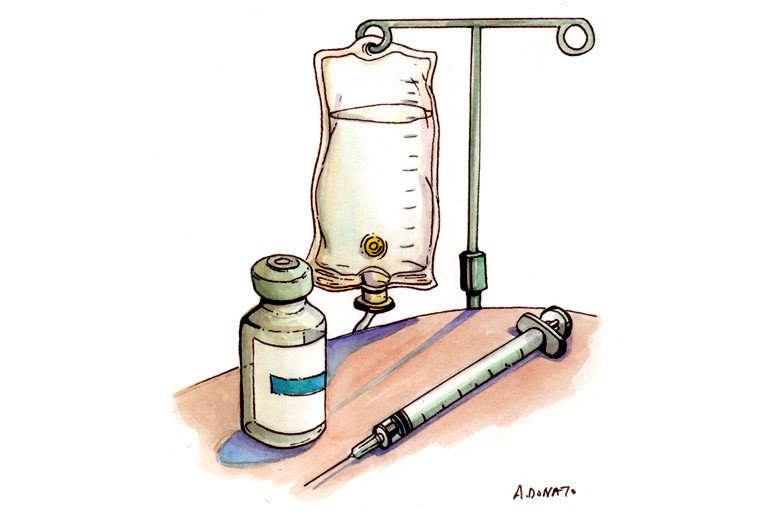
Common Names
- IPT
For Patients & Caregivers
Tell your healthcare providers about any dietary supplements you’re taking, such as herbs, vitamins, minerals, and natural or home remedies. This will help them manage your care and keep you safe.
Insulin potentiation therapy has not been shown to treat or prevent cancer.
Insulin potentiation therapy involves administering insulin at the same time as chemotherapy drugs, with the idea that lower chemotherapy doses are then needed because insulin lets more of the drug enter cells. However, this theory has not been proven.
In general, insulin should not been taken by non-diabetics because it can decrease blood sugar to dangerously low levels, causing symptoms such as headache and delirium.
- To treat cancer
Evidence is lacking to support this claim.
- Low blood sugar
Do Not Take if:
- You do not have diabetes: In general, insulin should not been taken by non-diabetics because it can decrease blood sugar to dangerously low levels, causing symptoms such as headache and delirium.
- You are taking hypoglycemic agents: IPT can have additive effects.
For Healthcare Professionals
Insulin potentiation therapy (IPT) is an alternative cancer therapy that uses insulin to potentiate the effects of chemotherapy and other medications. This therapy was developed in Mexico by Dr. Donato Perez Garcia in the 1930s and has been used together with other unconventional therapies (1). Advocates of IPT believe that cancer cells consume more sugar than healthy cells and are therefore more sensitive to insulin and insulin-like growth factor (IGF) (2) (7). Insulin is also believed to increase the permeability of cell membranes, increasing the intracellular concentration and cytotoxic effect of anticancer drugs (1). According to the theory underlying this therapy, if cancer cells can be activated by exogenous insulin, a reduced dose (up to one-tenth the normal dose) of a chemotherapy drug can provide the same cytotoxic effects with less severe adverse reactions. The pharmacokinetic profiles on concurrent use of insulin and chemotherapy drugs are lacking and it is unclear whether insulin also potentiates toxic effects of chemotherapy on healthy cells. Exploratory studies suggest some benefit with a combination of chemotherapy and IPT (9) (10), but well-designed clinical trials have not been conducted.
Many of the medications used in IPT, such as insulin and other chemotherapy drugs, are FDA-approved but IPT clinics administer them “off-label.” Furthermore, some clinics that administer IPT are not operated or staffed by oncologists. Side effects of IPT include hypoglycemic reaction. A systematic review of 21 studies showed a correlation between circulating levels of IGF-I, IGFBP3 (IGF-binding protein) and an increased risk of common cancers (8).
- Cancer
IPT is a treatment strategy that seeks to utilize the physiological activities of insulin. It is based on the theory that insulin and insulin-like growth factor (IGF) play an important role in the cell cycle. IGF has been shown to affect proliferation, adhesion, and migration of normal as well as cancerous cells (2) and certain IGF receptors are overexpressed in many forms of cancer. Therefore, cancer cells may be selectively more sensitive than normal cells to IGF (1) (7).
IGF receptors can be activated by exogenous insulin. Insulin is also believed to increase the permeability of cell membranes, leading to the increased intracellular concentrations and cytotoxic effects of anticancer drugs.
Proponents argue that insulin synergistically enhances cancer drug efficacy so that a reduced dose can be used with similar cytotoxic effects (5) (6), but the role of IGF receptors in cancer treatment is likely more complex.
- Hypoglycemia
- Hypoglycemic agents: IPT may potentiate their effects.